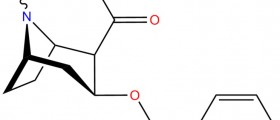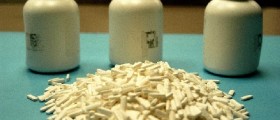Overview
Cocaine is an addictive drug that can cause numerous mental health related signs and symptoms.
Cocaine, in the form of "crack" is more often associated with intense and frequent symptoms. In fact, paranoia occurs between 68 and 84 percent of individuals who use cocaine.
Violent behaviors associated with the use of cocaine is experienced in up to 55 percent or users, and homicide as a result of cocaine use occurs in up to 31 percent of users of the drug. Suicide rates in cocaine users are between 18 and 22 percent.

Signs and symptoms of cocaine use
The typical signs and symptoms of cocaine use include:
-
Decreased inhibition.
-
Increased agitation.
-
Increased movement or hyperactivity of the body.
-
Involuntary muscle movements such as tics.
-
Effusive enthusiasm.
-
Increased rate of common cold-like symptoms.
-
Frequent nosebleeds.
-
Changes in concentration
-
Issues with focusing.
Abuse
Besides causing these issues, people using cocaine can also become dependent on the drug which can lead to addictive behaviour. This can result in issues such as problematic social encounters with family members and friends, as well as getting into trouble with the law.
Long-term cognitive complications of cocaine use include decreased cognitive performance and the possible development of attention deficit disorder, and being irresponsible with the use of needles to deliver the drug intravenously leading to potential infections with diseases such as Hepatitis B and HIV.
Management
It's never too late to try and do something regarding stopping the use of cocaine until it is too late. There are many treatment options available to individuals who use the drug, even if they don't think that they can benefit from such therapies.
Psychologists are available to consult with patients and try to incorporate behaviour therapies to address the reasons, motivations and any possible underlying psychological issues that may be associated with the use of cocaine.
Pharmacological therapies for patients who use cocaine include using medications that mimic the effects of cocaine and then slowly tapering their dose down until one can safely stop these medications. This helps to reduce the chances of the patient experiencing withdrawal symptoms, as well as getting the patient to become less dependent on the drug so that their bodies don't crave the product anymore.
A medication that is used to help in cocaine withdrawal is methylphenidate which is used to manage patients diagnosed with attention deficit disorder.
















